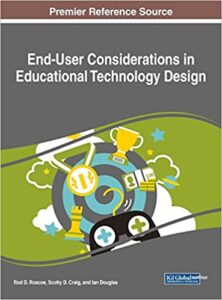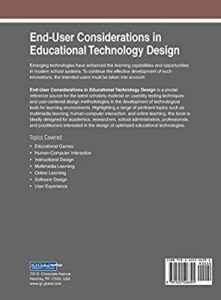Learning and Technology
SLATE Lab investigates how the intersection of learning science, computer science, and user science can inform effective and innovative uses of educational technologies. We are also interested in how cognitive, metacognitive, and motivational learning processes can be scaffolded by educational technology. Most recent studies have focused on literacy (e.g., writing and reading skills).
Writing and Writing Assessment
SLATE Lab and colleagues (e.g., SOLET Lab) conduct research on how students write and revise effectively, along with investigating computer-based tools for teaching writing strategies and scaffolding successful writing. We also develop methods and algorithms that allow computer-based tools to automatically assess writing and provide useful feedback. For example, several studies have tested new ways of detecting strengths and weaknesses in written essays, detecting revisions, and using natural language processing (NLP) tools to understand diverse types of successful writing.
User-centered Design
The design and development of educational technologies is a complex, interdisciplinary endeavor. Learning science research reveals principles of learning and instruction, and advances in computer science implement these principles in innovative technologies. SLATE Lab further considers how human systems engineering or user science contributes to learning technologies aligned to human users’ goals, needs, capabilities, and limitations. Systematic and iterative human systems engineering can contribute to educational technologies that are more functional, usable, desirable, and ultimately more effective.
 |
 |
Learning by Teaching
Ample evidence suggests that students can learn by teaching each other. However, robust learning depends on whether students engage in reflective knowledge-building (i.e., construction and transformation of knowledge driven by metacognitive self-monitoring) or knowledge-telling (i.e., restating or transmitting source materials). Interactions between student tutors and their tutees are critical. Processes of deep question-asking and answering can trigger reflective-building. The same principles apply when human students learn by teaching a simulated pupil or “teachable agent.”
Highlights
With Dr. Ariel Anbar (PI, ASU) and Dr. Norman Bier (PI, CMU), Dr. Rod Roscoe received a grant from the Gates Foundation to develop innovative and equity-centered courseware for introductory chemistry. Dr. Roscoe serves as the Equity Lead for the project.
Dr. Danielle McNamara and Dr. Rod Roscoe recently received a grant from the Office of Naval Research (ONR) to explore game-based assessments of literacy in an immersive simulation. We will be partnering with CRESST and the Navy Life project. As a first step, we will be investigating NLP and log-data metrics related to literacy skill.
